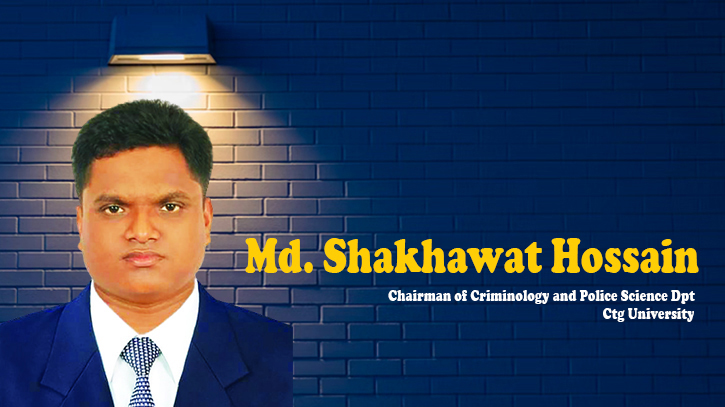
Photo: Messenger
Hartal, or general strike, in the South Asian subcontinent, especially in Bangladesh, which is a major export market for ready-made garment (RMG) items on a global scale, causes a daily loss totaling Tk 600 crore. Economists, businesspeople, and other stakeholders are of the understanding that the financial damages, caused by hartals during the days of political turmoil back in 2014, ranged from around Tk 1,500 crore to Tk 2,000 crore. According to an estimate, the average cost of hartals involving the economy from the year 1972 to the year 2014 was between 3% and 4% of the country’s gross domestic product (GDP). On the other hand, the average decline in export values from the year 1972 to the year 2014 was 0.4633%. So, it is undisputable that hartal and other strikes contribute to the decline in economic prosperity, while also spoiling sustainability.
Human Rights Watch (HRW), one of the United States-based human rights organisations, declared a statement on recent political issues of Bangladesh. They expressed that Bangladesh has launched a sweeping and violent crackdown on opposition parties to "eliminate competition" ahead of general elections, including arresting almost 10,000 activists. As well as the thousands arrested, many from the key Bangladesh Nationalist Party (BNP), a staggering number also face charges. According to the BNP, about half of its five million members "face politically motivated prosecution," said the HRW. But they didn’t interview other stakeholders of Bangladesh, who are involved in politics. Therefore, the steps of research are problematic, and ways are questionable.
The South Asian nation of around 170 million people is all set to hold its 12th parliamentary elections on January 7 next year, with Prime Minister Sheikh Hasina eyeing her fourth consecutive term in the office. "Bangladesh authorities are carrying out mass arrests of political opposition in a clear attempt to quash the opposition and eliminate competition ahead of the general elections," HRW said. A New York-based HRW, who called it a "violent autocratic crackdown," said at least 16 people have been killed since protests escalated in October, including two police officers. Who are the killers of police officer, they didn’t identify that. It seems that they couldn’t take the proper initiative to resolve the problems.
The report declared that more than 5,500 people have been injured. It said it had found "evidence that security forces are responsible for using excessive force, mass arbitrary arrests, enforced disappearances, torture, and extrajudicial killings." Bangladesh is one of the world's largest garment exporters, accounting for around 85 percent of its $55 billion in annual exports, with many global brands purchasing clothes from its factories. "Diplomatic partners should make clear that the crackdown will jeopardise economic cooperation," HRW said. Julia Bleckner, a senior Asia researcher at the New York-based Human Rights Watch, is of the observation that credible elections cannot be held under such conditions. "A free election is impossible when the government stifles free expression and systematically incapacitates the opposition, critics, and activists through arbitrary arrests, enforced disappearance, harassment, and intimidation," viewed Bleckner. But they didn’t talk about as to who created the such a situation, and indeed, who are responsible? So, their way of understanding is not sustainable and holistic.
From the above discussion, it is evident that it is a totally partial report. Because when you conduct research, you should incorporate a definite number of respondents. But HRW reports clearly that they took the interview from a BNP supporter. So, they give comments based on their party’s demands. Not only that but from the beginning of the election procedure, the US government wanted to influence the national election of Bangladesh. Always they violate the Vienna Convention Act on Diplomatic issues to conduct their formal duties. As per the case, the BNP leaders and their supporters depend on the US government rather than the Bangladeshi people. The Human Rights Watch statement also proves that they declare the partial report of the current situation of Bangladesh.
The Election Commission of Bangladesh declares the date of the national election according to the rules and regulations of the Constitution. On the other hand, the BNP and some other political parties called for hartal and blockade to demand a caretaker government. But in our constitution, there is no scope to constitute a caretaker government. So, their demand is totally illegal. The Human Rights Watch report didn’t identify the measurable situation of the general people of Bangladesh based on hartal and blockade. Though the general public denies the proposal of hartal and blockade, fear of crime to become victimised exists among the citizens of Bangladesh.
It can, therefore, be said that the report of Human Rights Watch is totally biased and a partial report. The human rights organisation didn’t give any reports about Palestine issues, and they have no interest in them. But when the election commission of Bangladesh declared the election date, the BNP called for hartal and blockade to ban the election on time. HRW reports should identify the terrorists (arson) who regularly create fear amongst the general citizens of Bangladesh. Not only that but also who is donated for arson, who motivates the terrorists, and who are the enemies of Bangladesh must be identified properly. But the American human rights organisation shared the one-sided report with the stakeholders. So, the report is totally unfair and questionable.
To many, the recent HRW report is nothing special. The report implies that the organisations like HRW just fulfill their own agenda. The people of Bangladesh remain aware and conscious of the role of the USA and their organisations. My view is that the recent HRW report doesn’t create any obstacle to holding the scheduled general elections of 2024. Moreover, most of the people don’t agree anymore with hartal and blockade in the name of political movements as those hamper the daily activities of the general people, and cripple the country’s economic march forward.
The writer is Assistant Professor and Chairman, Criminology and Police Science, University of Chittagong
Messenger/Sun Yath








